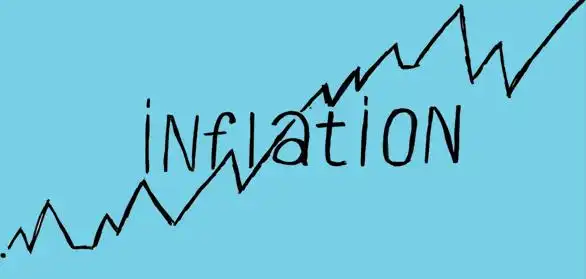
3 minute read
The Impact of Rising Inflation
from Henlow Feb 2022
by Villager Mag
Nobody likes paying more for things, but inflation may be a particular problem in 2022. Here’s what it could mean for your finances. Why is it increasing? The Bank of England has forecast inflation could regularly hit 4% or higher in 2022. That’s partly because some of the suspected causes of recent price rises may be here for some time. This includes: higher oil and gas prices (driven by worldwide demand) that affect manufacturing; a shortage of staff in lorry driving and hospitality pushing up wages; and supply-chain problems such as global shipping slowdowns and silicon chip shortages. The fact that it’s manufacturing costs rather than consumer demand for specific products may affect the way shoppers experience this inflation. It’s likely they’ll find everything seems a little pricier, rather than particular items suddenly feeling shockingly expensive. That could mean the squeeze of incomes – especially with National Insurance rising in April - is a little tighter. Not just spenders - Savers and investors may also notice the difference. A 4% inflation rate exceeds all but the most attractive savings rates on offer, meaning savers lose buying power over time. (Though savers are still better off than those not making any interest.) That could incentivise some people with spare cash to move to riskier investments in the hope of a better return. Effect on pensions - Rising inflation has consequences for pensioners, beyond increasing prices. The ‘triple lock’ means the state pension rises each year by whichever is higher: rises in average earnings, inflation from the Consumer Price Index, or 2.5 percent. A prolonged spell of inflation above 2.5 percent could mean bigger pension rises. Effect on mortgages - Perhaps the biggest concern for many consumers is how inflation could affect their mortgages. Until the financial crisis of 2008, central banks and governments traditionally used higher interest rates as a way to bring down excessive inflation. The theory was simple: higher interest payments meant homeowners had less money to spend in the shops, meaning retailers couldn’t get away with too many price rises. Since 2008, however, central banks have tended to concentrate on keeping rates as low as possible so that people have spare money to spend and help keep the economy moving. Another argument against rate rises is that the current inflation doesn’t appear to be the result of consumers having too much money, but rather goods being more expensive to produce. That means interest-rate rises might not have that much effect and could even cause problems with consumers cutting back on purchases of non-essential goods. On the other hand, the Bank of England’s Monetary Policy Committee (which sets interest rates in the UK) may conclude rate rises are its last resort against excessive inflation. That means existing borrowers, those coming to the end of fixed term deals, and those planning to take out a mortgage for the first time, should all build some extra slack into their calculations and make sure they could cope with any increase in their monthly repayments.

Advertisement
A FREE WILL for Homeowners Protect your home and legacy for your children
• Keep your hard-earned wealth within the family • Stop your home from being sold to pay for long term Care Fees. • Prevent the courts from making your financial and healthcare decisions. • If you already have a Will … Is it up to date? • Several thousand outdated wills are legally challenged every year. • Ensure your parents’ home and property is also protected. DON’T PUT IT OFF – Don’t let your home and money disappear, make sure your estate goes to your family… leaving “what you want” to “who you want”. CALL 01767 660250 or email info@willandestateplanning.com for more information or to book a free meeting with one of our Will and Estate Planners either in your own home or at our offices. Baystrait Ltd t/a Will & Estate Planning, Baystrait House, Station Road, Biggleswade, SG18 8AL











